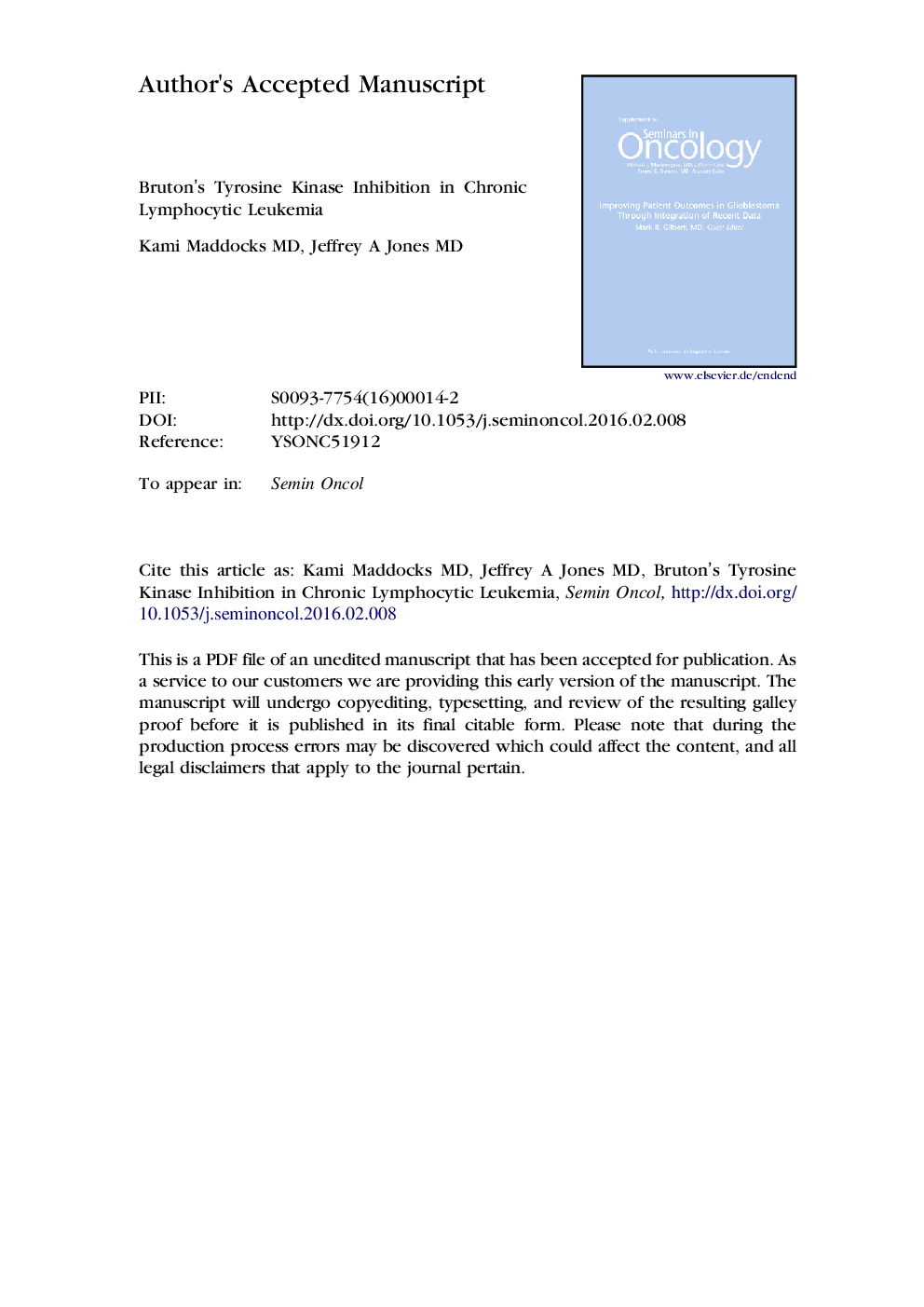| Article ID | Journal | Published Year | Pages | File Type |
|---|---|---|---|---|
| 2161749 | Seminars in Oncology | 2016 | 38 Pages |
Abstract
Chronic lymphocytic leukemia (CLL) is the most common adult leukemia and remains incurable outside of the setting of allogeneic stem cell transplant. While the standard therapy for both initial and relapsed CLL has traditionally included monoclonal antibody therapy in combination with chemotherapy, there are patients with high-risk disease features including unmutated IgVH, del(11q22) and del(17p13) that are associated with poor overall responses to these therapies with short time to relapse and shortened overall survival. Additionally, many of these therapies have a high rate of infectious toxicity in a population already at increased risk. Targeting the B-cell receptor (BCR) signaling pathway has emerged as a promising therapeutic advance in a variety of B-cell malignancies, including CLL. Bruton agammaglobulinemia tyrosine kinase (Btk) is a tyrosine kinase in the BCR pathway critical to the survival of both normal and malignant B cells and inhibition of this kinase has shown to block the progression of CLL. Ibrutinib, a first in class oral inhibitor of Btk, has shown promise as a very effective agent in the treatment of CLL-in both relapsed and upfront therapy, alone and in combination with other therapies, and in patients of all-risk disease-which has led to its approval in relapsed CLL and as frontline therapy in patients with the high-risk del(17p13) disease. Several studies are ongoing to evaluate the efficacy and safety of ibrutinib in combination with chemotherapy as frontline treatment for CLL and investigation into newer-generation Btk inhibitors is also underway.
Related Topics
Life Sciences
Biochemistry, Genetics and Molecular Biology
Cancer Research
Authors
Kami Maddocks, Jeffrey A Jones,
